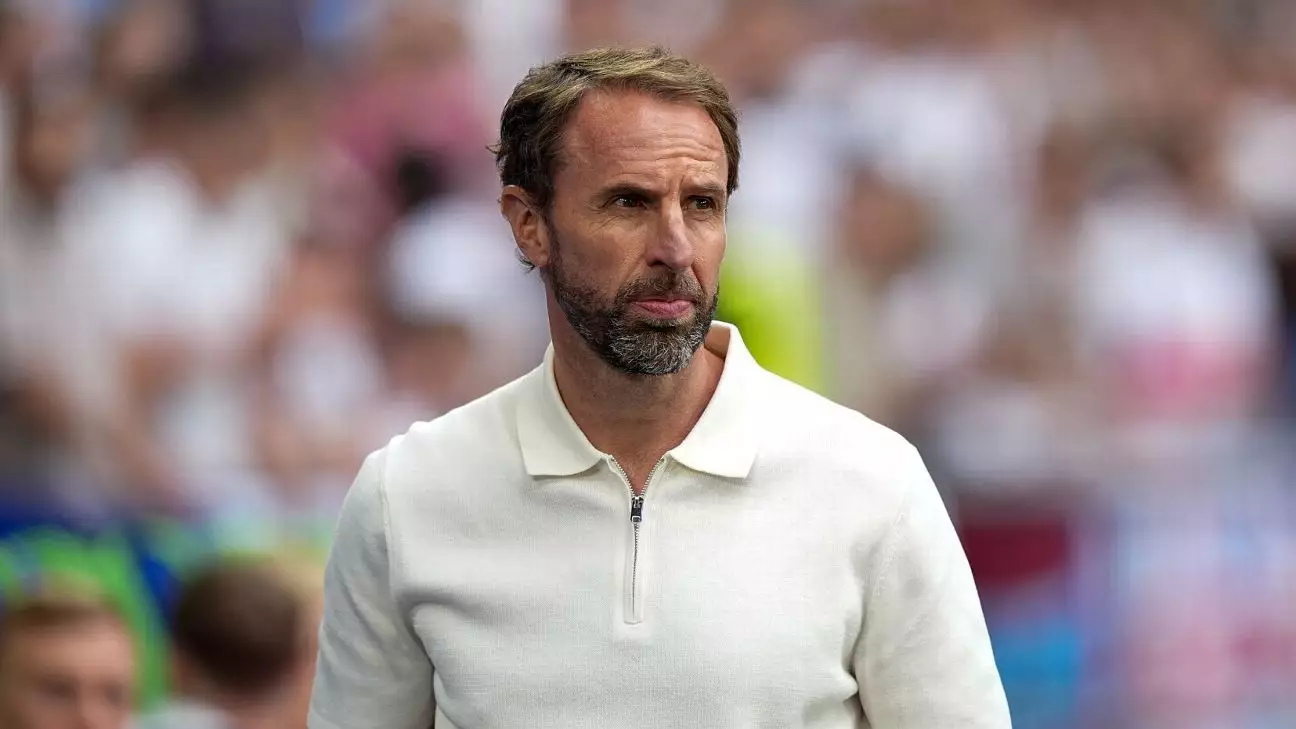Gareth Southgate, the former manager of the England national football team, has recently made headlines not just for his previous role but for his current stance on management. With rumors swirling around Manchester United potentially parting ways with Erik ten Hag, Southgate’s name has surfaced as a possible successor. However, the 54-year-old has firmly ruled out any immediate return to coaching, expressing the need for personal time after stepping down from such a high-profile position. Southgate’s resignation followed a commendable run with the national team that saw them reach the final of the UEFA European Championship only to be narrowly defeated by Spain.
Stepping down as England’s coach is never easy, especially after achieving notable success. Since resigning, Southgate has embraced a different side of football, taking on a role with UEFA as a technical observer. This position allows him to stay connected to the sport while providing the necessary distance from the pressures of team management. He acknowledges the importance of this hiatus, stating, “I need to give myself time to make good decisions.” This self-awareness demonstrates a maturity that many seasoned managers, particularly those exiting significant positions, often lack.
While Southgate is stepping back, the situation at Manchester United grows increasingly complex. Erik ten Hag remains at the helm, but after a shaky start to the current season—with only three wins from ten matches—questions arise about his continued presence. The executive committee’s recent meeting to evaluate ten Hag’s performance indicates that the club’s leaders are actively assessing their options, already having explored various candidates during the past summer. Names like Thomas Tuchel and Mauricio Pochettino were considered, highlighting the seriousness with which the club is approaching their managerial situation.
Despite the mounting pressure surrounding ten Hag, Southgate has effectively kept a distance from the United job, a decision that underscores his commitment to a thoughtful return rather than a rushed one. This alignment with the club’s decision-makers, such as Sir Dave Brailsford and sporting director Dan Ashworth, certainly fuels speculation, yet Southgate’s conscious choice to avoid discussions about the role reflects a deeper sense of purpose. He claims he is in no rush to return to management, which indicates his dedication to preparing himself mentally and physically for whatever the future may hold.
As the football season progresses and the storyline around Manchester United continues to evolve, Southgate’s choice to refrain from immediate coaching assignments allows him to redefine his career trajectory. His current work with UEFA could open new avenues that enhance his managerial skills or even lead to different opportunities in football leadership. Regardless of what comes next, Southgate’s approach serves as a reminder of the importance of self-reflection in an industry often characterized by hasty decisions. The unfolding drama at Manchester United may just propel him back into the spotlight, but for now, he remains content with the space he has chosen to create for himself.

Leave a Reply